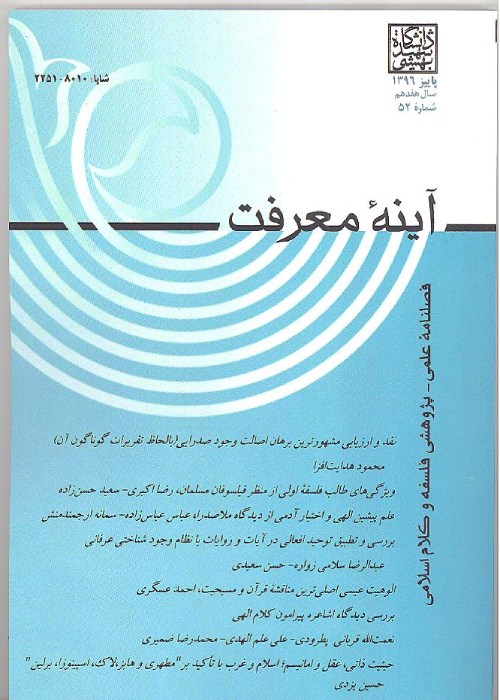Al-Farabi and Machiavelli
Author(s):
Abstract:
Strange as it might seem to put Al-Farabi and Machiavelli alongside each other, the unity of the essence of philosophy provides a basis for a comparative outlook. The present article is an endeavour to introduce a new comparative reading of the political philosophy of Abu Nasr Al- Farabi (870 – 950) and Niccol Machiavelli (1469 – 1527) as twoinfluential figures in the political philosophy of Islam and the modern political philosophy of the west. For this purpose, some of Al-Farabi’s works which have not attracted much attention and Machiavelli’s major political treatises are examined with a realistic empirical approach to present a realistic picture of Al-Farabi’s political philosophy and a philosophical picture of Machiavelli’s political thought. The reading through initiation of a dialogue between the two great thinkers is intended to open a window through which we can appreciate the efficacy of our dignitaries and in this way take a step into the real world. To achieve this aim, we first present the similarities and differences identified in thepolitical thought of the two philosophers. The similarities are consideration of facts, the importance of empirical perception, presentation of the foundations of politics and the relationship between politics and anthropology. The differences are the different religious backgrounds, the differential emphasis on objectivity and subjectivity, the relationshipbetween politics and existence and the allegory of the physician. The conclusion is that rationality underlying Al-Farabi’s political philosophy has a lot of potentiality for the development and efficacy of human beings, while Machiavelli’s radical subjectivism and pessimism has negative consequences for the world. While Al-Farabi’s rationalism is empiricallybased and is consistent with the foundations of the modern world andman’s awareness and freedom and as a result useful for us in this world, Machiavelli’s egocentric and fortuitous thought makes fear and horror as a natural state of human minds.
Language:
Persian
Published:
Ayeneh Marefat, Volume:7 Issue: 19, 2009
Page:
144
magiran.com/p858795
دانلود و مطالعه متن این مقاله با یکی از روشهای زیر امکان پذیر است:
اشتراک شخصی
با عضویت و پرداخت آنلاین حق اشتراک یکساله به مبلغ 1,390,000ريال میتوانید 70 عنوان مطلب دانلود کنید!
اشتراک سازمانی
به کتابخانه دانشگاه یا محل کار خود پیشنهاد کنید تا اشتراک سازمانی این پایگاه را برای دسترسی نامحدود همه کاربران به متن مطالب تهیه نمایند!
توجه!
- حق عضویت دریافتی صرف حمایت از نشریات عضو و نگهداری، تکمیل و توسعه مگیران میشود.
- پرداخت حق اشتراک و دانلود مقالات اجازه بازنشر آن در سایر رسانههای چاپی و دیجیتال را به کاربر نمیدهد.
In order to view content subscription is required
Personal subscription
Subscribe magiran.com for 70 € euros via PayPal and download 70 articles during a year.
Organization subscription
Please contact us to subscribe your university or library for unlimited access!



